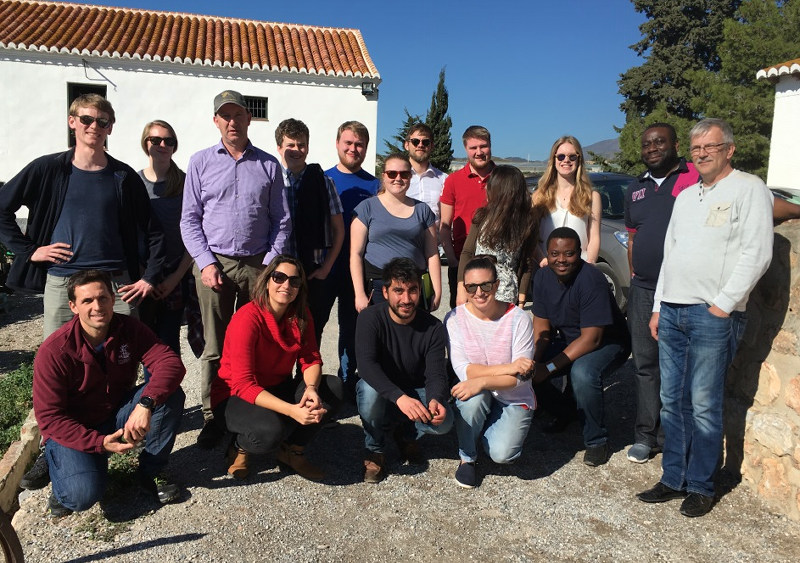
Writtle College students' study trip to Spain
BALI Training Provider Writtle University College Horticulture and Agriculture students have learnt more about the commercial production and exportation of tomatoes and other fruits and vegetables during a study tour to Almeria in Spain, home to over 30,000 hectares of protected cropping.
During the five-day long trip, the BSc (Hons) Horticulture and MSc Postharvest and Crop Production students gained an insight into major producers and processors.
These included one of the largest exporters in the world and a company that produces tomatoes exclusively for Tesco in the UK.
Henry Matthews said: “This study trip is designed to provide students with in-depth focus on the most up-to-date approaches to sustainable crop production and postharvest technology. It is an invaluable learning experience.”
Third year BSc (Hons) Horticulture student Amy Knofczynski, from the USA, said: “I found the trip to Almeria to be an incredibly informative and enjoyable experience. Visiting the world's largest concentration of greenhouses has helped to expand my views of horticulture production and the industry.
As an international student, it was especially rewarding being able to travel to a new country and experience their culture, climate, and horticultural practices.”
At the University of Almeria, the students learnt about the research into different growing regimes for tomato production, particularly the incorporation of green waste from the crop back into the soil to reduce the need for fertilisers and reduce water consumption. They also heard about the potential for papaya production and issues surrounding this such as how to mimic the growing conditions found in South America.
A visit to Vicasol enabled the students to find out more about the production and export of vegetables and fruits, including tomato, pepper, courgette and melon. Small seedless, sweet peppers were being grown as a snack product, and the students were able to discuss aspects of production with the head grower such as irrigation requirements, the source of water and soil management. Issues of sustainability and use of plastic and recycling were also discussed. They visited the fruit and vegetable pack-house seeing tomatoes and cucumbers being packed ready to be shipped to the UK.
At CASI, one of the largest exporters in the world, the students saw the processing and packing of tomatoes; the students were amazed by the extent of automation from the sorting and grading of produce to the use of robotic arms in the movement of produce around the pack-house.
At Primaflor, a company dedicated to processed vegetables ready to eat, the students saw fields of lettuce and other vegetables as well as the processing of fresh-cut products. They saw the whole process from automated seed sowing, growing of plug plants, harvesting of ‘cut and come again’ baby leaves through to the finished bagged product.
In Motril, Granada, they visited Grupo La Caña, which produces and exports tomatoes, peppers and avocado. The students visited the greenhouses - where 185 varieties of tomatoes were being trialled - and the avocado orchards. They also learnt more about the structure of the trust company, which has several departments and facilities and is extending its agricultural activity to both the provinces of Almeria (East) and Malaga (West).
The trip concluded with a visit to Glinwell Spain where they learnt more about the production of tomatoes under glass exclusively for Tesco in the UK. Here the focus of the visit was the challenges of growing in Spain compared to the UK.
To find out more about studying a degree or Masters in Horticulture or Agriculture at Writtle University College, visit writtle.ac.uk

